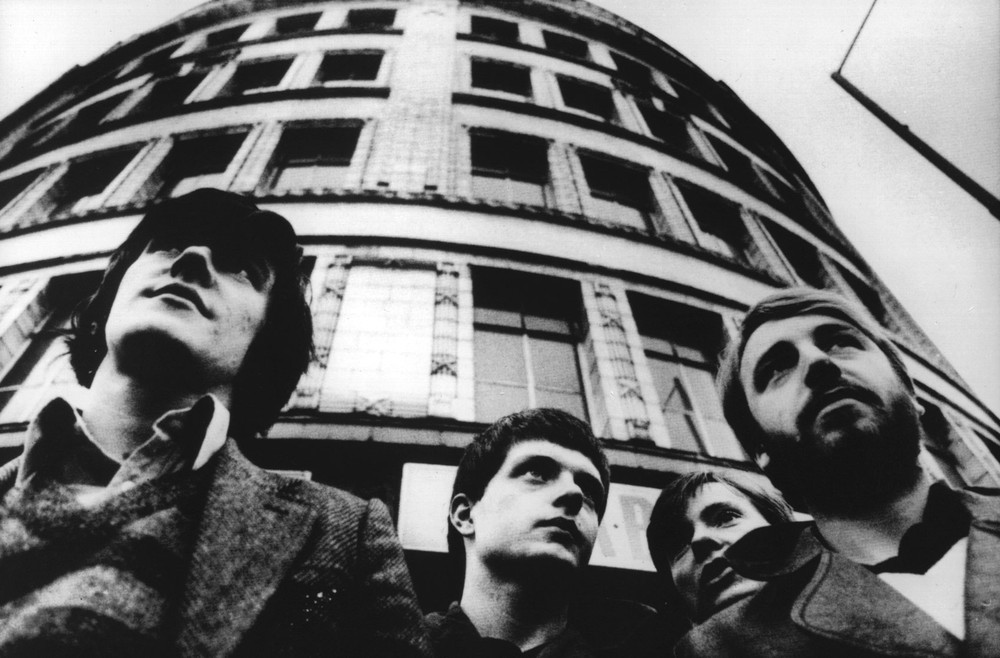
Joy Division were a post-punk band formed in 1976 in Salford, Greater Manchester, United Kingdom. Originally named Warsaw, the band consisted of Ian Curtis (vocals and occasional guitar), Bernard Sumner (guitar and keyboards), Peter Hook (bass guitar and backing vocals) and Stephen Morris (drums and percussion). The band dissolved in May 1980 after the suicide of its lead singer, Ian Curtis. Much of their popularity/reputation arguably resulted from frequent playings on air by iconic DJ John Peel
1,868 members

Joy División
Joy Division were a post-punk band formed in 1976 in Salford, Greater Manchester, United Kingdom. Originally named Warsaw, the band consisted of Ian Curtis (vocals and occasional guitar), Bernard Sumner (guitar and keyboards), Peter Hook (bass guitar and backing vocals) and Stephen Morris (drums and percussion). The band dissolved in May 1980 after the suicide of its lead singer, Ian Curtis. Much of their popularity/reputation arguably resulted from frequent playings on air by iconic DJ John Peel
1/50

Processing new audio file...

FIRE
SAVE
SHARE
0 plays
Report inappropriate
Timed ▼Newest
▼Timed Newest
Show more comments
1/50

Processing new audio file...

58 FIRE
1 SAVE
SHARE
13 plays
Report inappropriate
1/50

Processing new audio file...

23 FIRE
SAVE
SHARE
35 plays
Report inappropriate
For his latest album, "New Techniques To Escape Mediocrity Vol.1", the New Wave-inspired Synthwave producer David Garelli, aka Batta Malagna, draws on the musical language developed by the New Wave of composers such as Diaframma, Litfiba The Smiths and Joy Division. Inspired by the mediocrity of his country, by the non-existent opportunities and by the dating apps where the more superficial and flashy side of his peers and others comes out, Batta's work on New Techniques delves deeply into the cinematographic films of the 80s.
In a certain sense, the relationship between New Wave and cinema was predestined. Both mediums arose in the late 19th century, and both continued to exert enormous influence on popular culture, art, and intellectual life throughout the 20th. Inevitably, the two mediums would meet in a collision facilitated by both popular tastes and technological innovation. Early films were rudimentary, single-shot experiments without color or sound, and early cinematic depictions of musicians and New Wave as an art form lacked complexity, limited to documentary-style depictions of their performances. Soundtracks introduced the producer into the creative process, transforming the musician from subject to agent. As the true champion/archivist of sound that he is, Battamore

